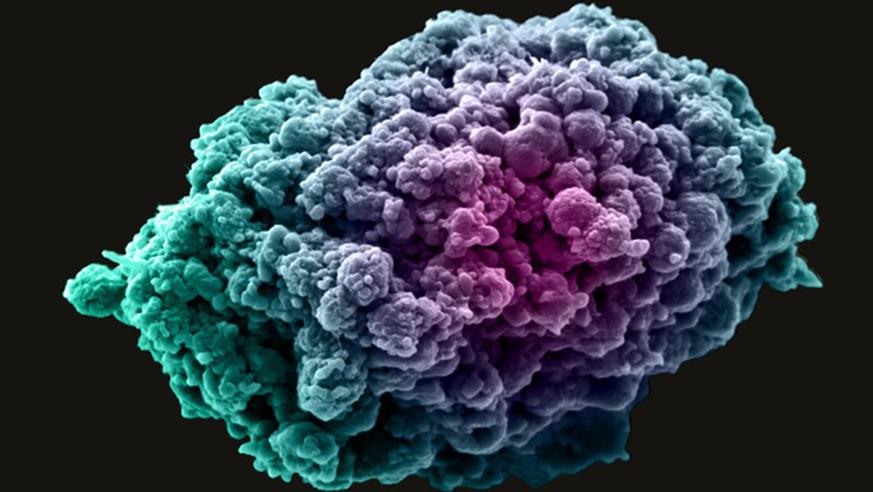
Image: Breast cancer spheroid courtesy of Wellcome Collection. License: (CC BY 4.0)
Scientists have uncovered a crucial change in cancer cells that allows them to spread around the body – by switching from sugar to fatty acids to fuel their growth.
Changing their ‘diet’ in this way allows tumour cells to set up shop at new sites where resources such as glucose – their preferred food source – are limited.
Researchers at The Institute of Cancer Research, London, found that a protein called AKR1B10 helps cells adapt the ways in which they get their energy.
When cancer cells have high levels of AKR1B10, it reduces their dependency on sugar and increases their ability to use fatty acids as a fuel source instead.
Shutting down cell food sources
The research raises the opportunity to screen breast cancer patients for increased levels of AKR1B10, which may help identify patients at an increased risk of metastatic relapse.
It could also lead to the development of new treatment options that shut down cells’ ability to use fatty acids – which the study showed could reduce relapse rates in mice.
The study was published in Nature Communications and funded by Breast Cancer Now. The study focussed on breast cancer cells, but high levels of AKR1B10 are also seen in liver, lung, and pancreatic cancers.
We are building a new state-of-the-art Centre for Cancer Drug Discovery centre to create more and better drugs for cancer patients.
Find out more
The researchers first identified AKR1B10 in a screen for proteins which, when expressed at high levels, helped cancer get ahead at new locations, while low levels of the protein hinder its growth in new organs.
Cells normally avoid using fatty acids for fuel as there are toxic side effects. High levels of AKR1B10 limit these toxic side effects, allowing cancer cells to thrive in new areas in the body.
The opposite is also true – switching off the cancer cells’ ability to use fatty acids reduces their ability to form tumours at new sites in the body.
Cancer survival mechanisms
Professor Clare Isacke, Professor of Molecular Cell Biology in the Breast Cancer Now Toby Robins Research Centre at the ICR, said:
“Cancer cells have to work hard to take root and form a tumour. When tumour cells head on the move to other parts of the body, a process called metastasis, they have to work even harder to adapt to the energy and nutrient sources available to them wherever they find themselves, as well as surviving the journey.
“Our study has shown the importance of cancer cell learning how to use different nutrients and energy sources in order to survive.
“We found that high levels of the protein AKR1B10 help tumour cells adjust to new environments as cancer spreads from the breast to other organs such as the lungs.
“This research significantly improves our understanding of cancer cell metabolism and metastatic relapse and could lead to new avenues of exploration for new therapies and treatments for patients with metastatic breast cancer.”